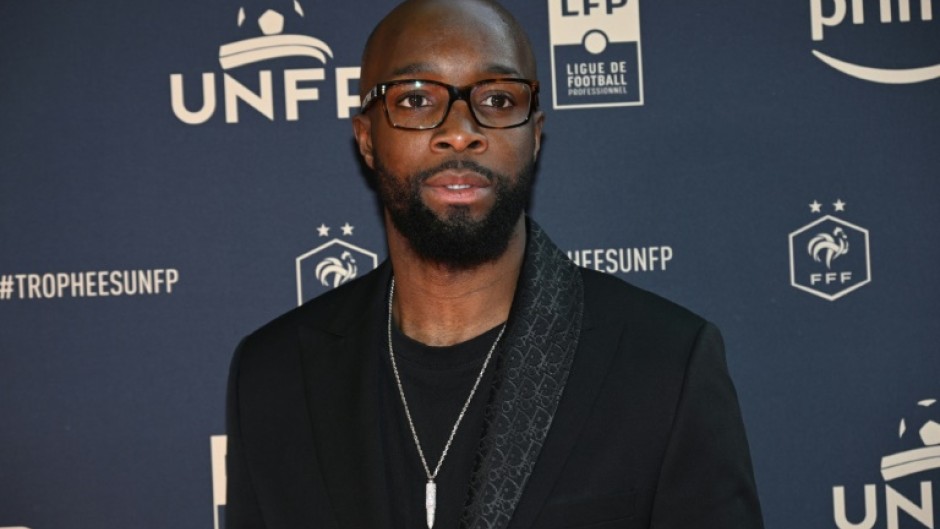The EU's top court said on Friday some international football rules regarding the transfers of players are contrary to the bloc's laws, in a landmark decision that could shake up the system.
The Court of Justice of the European Union (CJEU) was called on to decide a long-running dispute between former French footballer Lassana Diarra, once of Chelsea and Real Madrid, and world governing body FIFA over what happens when players unilaterally terminate their contract.
In a highly anticipated verdict, judges found that by restricting a footballer's ability to seek further employment, current FIFA rules hinder the EU's free movement and competition between clubs.
"The Court holds that all of those rules are contrary to EU law," it said.
The ruling could have far-reaching implications for the transfer market, allowing players to leave their club without fear of being legally trapped afterwards.
Diarra's Belgian lawyer Jean-Louis Dupont, who had dubbed the case "the Bosman 2.0 affair", hailed the new ruling as "a total victory".
Dupont was also involved in the landmark 1995 case of the then little-known player Jean-Marc Bosman, which allowed players to move to another club at the end of their contract without a transfer fee being paid and also ended quotas on foreign players at clubs.
In response to Friday's verdict, FIFA said it would "analyse the decision in coordination with other stakeholders before commenting further".
"FIFA is satisfied that the legality of key principles of the transfer system have been re-confirmed in today's ruling," it added.
"The ruling only puts in question two paragraphs of two articles of the FIFA Regulations on the Status and Transfer of Players, which the national court is now invited to consider."
But global players' union FIFPRO called the judgement "a major ruling".
"The entire economic logic behind the transfer market is undermined today," FIFPRO lawyer Pieter Paepe told AFP.
- Financial and legal risks -
The Diarra saga goes back 10 years.
In August 2014, Lokomotiv terminated the midfielder's contract citing contractual breaches by the player. The Russian club also sought 20 million euros ($22m) compensation from Diarra, now aged 39.
Diarra, who also played for Arsenal and Portsmouth among other clubs during his career, refused and requested that Lokomotiv pay him compensation.
He was eventually ordered to pay his former club 10 million euros by FIFA, a fine that was upheld by the Court of Arbitration for Sport. Diarra also received a backdated 15-month suspension.
According to FIFA regulations, if a player terminates his contract unilaterally and "without just cause", he must pay compensation which includes his remuneration and benefits until the end of his contract.
Additionally, a purchasing club could be held jointly liable for any compensation and, in certain cases, be banned from signing any new players for a given period.
National football associations are also forced to refuse to issue a certificate needed to complete a transfer while a dispute is pending.
As a result clubs were not rushing to recruit Diarra after he left Lokomotiv.
His lawyers argued the rules violated the EU's free movement of workers, and were contrary to the principle of free competition within the 27-nation bloc.
Diarra requested six million euros from FIFA, on the grounds that he was prevented from playing during most of the 2014-2015 season.
Belgian side Charleroi rescinded their contract offer, fearing the possible legal and financial consequences.
After several twists and turns, a Belgian court asked the CJEU its opinion on the matter.
On Friday, the CJEU found that the rules impede the free movement of players by "imposing considerable legal risks, unforeseeable and potentially very high financial risks as well as major sporting risks on those players and clubs wishing to employ them".
Although some restrictions could be justified to allow a certain degree of stability in the player rosters of football clubs, the rules in question went beyond "what is necessary to pursue that objective", it said.
The ruling throws the world of football transfers into uncertainty.
Smaller teams often rely on trading players to sustain their finances -- recruiting young prospects on the cheap to later sell them at a high price.
Clubs currently have no obligation to let players go before the end of their contract, which gives management power in transfer negotiations, a lever they potentially stand to lose.
By Matthieu Demeestere And Emmanuel Barranguet

